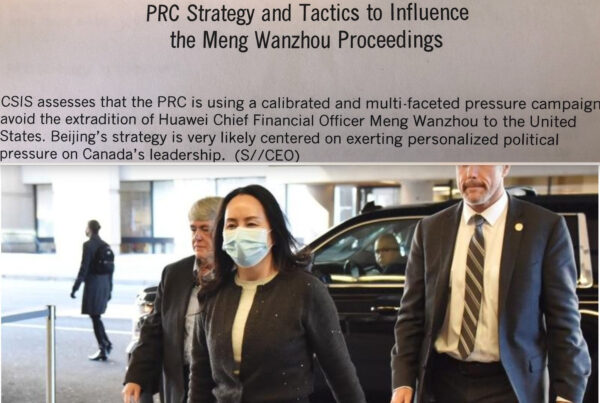“Women — and mothers in particular — possess the unique ability to recognize early warning signs of radicalization in their children. They can play a key role in curtailing violent extremism”
— Dr. Edit Schlaffer
The responsibility of countering radicalization and violent extremism—by protecting citizens and assets—has traditionally been placed on governments, security officials, and private corporations. Heightened security and the influx of public and private spending to bolster our defence against terrorist violence has coincided with the steady rise of terrorist violence around the globe. Never before has terrorist violence threatened the west and western interests like it does today, leaving many to wonder: What else can we do to protect ourselves? Protection from threats related to violent extremism does not necessarily require an influx of government and private defence spending. Modification can be as simple and as inexpensive as altering policy to inspire change at the grassroots level. This article will explore how certain qualities associated women as mothers and wives that have the potential to help counter the growing threat of radicalization and violent extremism at home, in communities, and at-risk areas. This article will also outline and analyze a number of ways women can be enlisted in their roles as mothers and wives to counter radicalization and violent extremism through education, engagement with governments and non-profit initiatives, and empowerment. Women have the potential to be uniquely educated, engaged, and empowered to counter the threat of violent extremism, and curb the alarming growth of extremist values in at-risk countries and communities globally.
Before examining how women can leverage their dynamic roles in families and communities to counter violent extremism, it is imperative to understand what makes women’s roles so unique. This article does not aim to generalize all women as caregivers and influential family leaders, but rather recognize that some women have the potential to help change the social mechanisms that guide individuals into violent extremism. Inside family structures, women can be emotional leaders, platforms for stability, support, and compassion,[1] as well as a social authority for husbands and children who may be prone to extremism. While this role is not uniform globally, there is significant opportunity for female-based activism—even in places where religious extremism has virtually silenced women.
Women’s roles vary between societies, but women’s roles as mothers and wives offer an opportunity for women to act as powerful role models against violent extremism, as the shapers of familial and social norms, and promoters of tolerance and societal engagement.[2] Currently, countering violent extremism falls onto the shoulders of government and the defence and security industry—fields where women are significantly underrepresented. Women currently make up 14.8% of all Armed Forces personnel in Canada,[3] a figure that is equally as low in the United States (14.6%),[4] and even lower in the United Kingdom (9.9%).[5] From a policy perspective, women only make up 21.9% of Federal Government representatives globally.[6] In addition to an obvious lack of engagement of women on public safety matters professionally, women are also not formally engaged in counter-radicalization efforts in their social roles as mothers and wives.[7] By ignoring the unique social role of women, we are excluding a large and potentially impactful actor with the potential to counter the rising threat of violent extremism more effectively and less expensively than modern military and policy tactics, which are currently the norm. Women’s prominent roles within families gives them the ability, if engaged and empowered, to shift from being viewed as passive victims of violent extremism, to being on the frontline of resilience.[8] The efforts required to effectively counter radicalization goes far beyond the role of women in families and communities. Public safety efforts require a unique collaboration of a number of social, economic, and security initiatives to incite notable change. Efforts must focus not only on gender equality in security and defence matters, but on engaging women as mothers and wives to counter the threat of radicalization from inside the family structure.
Modern day counter terrorism efforts are generally the responsibility of defence departments, intelligence officials, and law enforcement, but much of the work done to stop violent extremism is reactive. It is not reasonable to say that security officials are failing in their capacity to curb the upward trend of violent extremism, especially in at-risk communities. However, it is important to understand that more needs to be done at the grassroots level to extinguish extremist ideology, and to curtail extremism from taking shape. According to Dr. Edit Schlaffer, women, particularly mothers, possess a unique ability to recognize early warning signs of radicalization in their children and partners and, therefore, play an integral role in identifying the precursors to violent extremism.[9] Children listen to their mothers because they view them as figures of respect and authority. It is imperative for mothers, and parents in general, to promote positive life choices for easily influenced younger generations, and to steer them away from violent extremist ideologies. Unfortunately, in some cultures and societies women as mothers and wives are not viewed as authorities or household leaders. It is in these communities where the presence of outreach programs and government initiatives are integral to the success of women’s abilities to counter violent extremist ideology.[10]
In areas where women are not viewed as family and community authorities, they must be equipped with the necessary knowledge and self-awareness to become active in the prevention of extremism in the security arena.[11] In order to ensure women as mothers and wives in these areas are given the necessary tools to become agents for change, governments and charitable organizations must step in. Organizations like Women Without Borders,[12] and Sisters Against Violent Extremism[13] are anti-terror platforms tailored exclusively for women, encouraging them to use their powerful roles as mothers and wives to deter violent terrorist activities and radicalization. According to Dr. Schlaffer, “Mothers are strategically located at the core of their families and, therefore, typically are the first to deal with their children’s fear, resignation, frustration and anger.”[14] In some societies, it is imperative to promote concepts such as self-confidence, competence, and empowerment in women to ensure that they are able to attain and maintain a position of respect within the community and a family structure that is unchallenged. Through community engagement projects, anti-extremism training, political dialogue, and expert discussions, platforms such as SAVE and WWB engage women in breaking through barriers such as nationalism, religion, and ethnicity in order to encourage critical thinking, reflection, and action against radicalization leading to violent extremism. A significant form of community engagement that has proven effective in at-risk areas is an initiative called Mothers School, which has been integral in equipping women in areas of prevalent violent extremism to raise delicate issues within their family structure, create a safe environment for conflict resolution, and to inspire other women to take up similar roles within their community and family.[15] Mothers School programmes are workshops or forums that enable mothers and wives to come together to discuss issues related to violent extremism in their home, develop strategies for dealing with the threat of radicalization, share experiences, and promote a community-wide change from inside of the family structure.[16] The classes are designed to introduce soft-skills such as listening, dialogue, de-radicalization techniques, and empathy to improve the process of child development and family communication.[17] Mothers School meetings last between 2-3 hours, and are conducted over a 10 week period. The workshops have empowered women in at-risk areas in Tajikistan, India, Nigeria, Pakistan, Indonesia, and many other places[18] to employ family based communication techniques to improve community-wide de-radicalization efforts.
It is this type of community engagement that Dr. Edit Schlaffer talks about in her article “Mothers of Extremists: The Unlikely Allies for a New Female Security Paradigm”. Dr. Schlaffer outlines that through her engagement with women in the West Bank, especially with mothers who have lost their sons, there is a newly formed sense of optimism. Mothers begin to engage as community leaders to rebel against the recruitment of their children into terrorist ideologies. According to Dr. Schlaffer, during her visit to the West Bank, she met a series of women lending their voice to the counter-radicalization movement. One mother, Samira, stated that:
“When they come to recruit our sons, we must rebel! A mother will gain nothing; her son is more important to her than anything else, and if you promise me the whole world and even heaven I wouldn’t change it for the life of my son.”[19]
This is a far cry from the previously prevailing sentiment in the West Bank where mothers would be honoured by their son’s martyrdom.[20] In the West Bank and elsewhere, women involved in extremist crimes has risen from 1% to 23% in a decade, as poverty combined with animosity towards the state for the imprisonment or death of their relatives has inspired women to promote and even join extremist groups.[21] However, women like Samira who live in conflict areas with high degrees of radicalization have found their voice though community programmes like Mothers School. Women’s stories of losing their children and husbands to violent extremism is an inspiring lesson for everyone, but especially young women that represent the era of new female diplomacy that has emerged globally, as women are becoming more involved in developing solutions to traditional security concerns.
Empowering women as mothers and wives to counter violent extremism goes beyond charitable organizations and outreach groups. Government must contribute heavily to ensure the successful inclusion of women at the grassroots level to counter violent extremism. Some steps have been taken by governments in the western world to emphasize the valuable role that women play in countering violent extremism. For example, in the United Kingdom, the “Prevent Strategy” has resulted in the arrest of over 200 British nationals in recent months for their involvement in terrorism related crimes.[22] Along with a physical policing approach to security, the UK’s “Prevent Strategy” has introduced various community based counter-extremism programmes, The intention of these programmes to empower marginalized individuals or people who may be subject to extremist views. In recent months, hundreds of community engagement activities aimed at preventing violent extremism have taken place around the UK, many aimed specifically at women and girls.[23] In particular, the United Kingdom has established a women’s stakeholder group to advise the government on how to better engage women in counter-terrorism measures at the community and family level.[24] It remains to be seen what type of impact a women’s stakeholder group will have on government decisions, but recognizing the unique role of women is an important step towards a gender inclusive remedy to violent extremism.
The same types of initiatives have also been employed in recent years in Canada and the United States, as programmes aimed at countering the growing radicalization narrative in at-risk communities have increased. The Somali community in the northern United States is an excellent example of this initiative in North America, as the United States Homeland Security efforts to counter violent extremism at the community level has been present in that community since 2011.[25] The Somali community in Minneapolis, Minnesota has been subject to heavy extremist recruitment efforts from terrorist organizations like Al-Shabab, making a government funded community polling approach necessary to support the strengthening of family units and involving women specifically in counter-extremism initiatives.[26] Moreover, there is a noticeable trend in counter-extremism efforts in the west to better engage with women to ensure that counter-narratives reach family structures and eventually the targeted community as a whole.
In Canada, much like the United States and the United Kingdom, initiatives to counter radicalization focus primarily on prevention through community outreach. According to Dr. Anna Gray-Henschel, Senior Director of National Security Policy with Public Safety Canada, Canada’s strategy to counter violent extremism starts with building resilience through developing co-operation with communities.[27] Foreign terrorist fighters and radicalized individuals can be limited by a close relationship between authorities and communities by way of prevention initiatives, increased law enforcement capacity through inclusivity training, and targeted intervention programmes in at-risk communities.[28] Essentially, in order to successfully operate a community based approach to countering violent extremism, Canada’s Department of Public Safety insists that authorities must engage with at-risk communities respectfully and transparently, whilst providing a culturally sensitive means of advising against radicalization and violent extremism. Public Safety Canada does not explicitly offer violent extremism prevention programmes exclusively to women, like in the United States and the United Kingdom, but it is evident that a community outreach approach to countering violent extremism is widely available in Canada, especially through programs like “Settlement, Resettlement and Interaction” in conjunction with Citizenship and Immigration Canada, which delivers services to citizens and newcomers by assisting with socio-economic integration and resilience building in communities especially prone to social isolation or violent extremism.[29] Canada, much like it’s western partners has developed a comprehensive strategy to counter violent extremism at the community level through well-funded programs designed to educate and empower, but it is apparent that in Canada, a community based approach exclusively targeting women would be beneficial, as women’s roles as mothers and wives in families and communities cannot be understated as a means of countering violent extremism from the ground up.
In conclusion, it is evident that women hold a very important role in the future of countering violent extremism, and excluding women from community based de-radicalization efforts is counterintuitive. Globally, women as mothers and wives possess the ability to inspire positive change within families and in their communities. Professionally, much has been done to ensure that women and men are seen as equals, and although there is still a long way to go to achieve complete equality in this respect, the progress made over the last decade has been astounding. It is imperative that governments and international organizations work to include women not just professionally in security policy, but to engage and inspire women as mothers and wives. These actions have the potential to promote safe and healthy communities by countering extremist ideologies, especially in at-risk communities, and in societies where women as mothers and wives are not viewed as figures of community and family authority.








